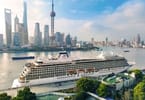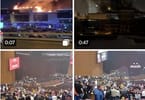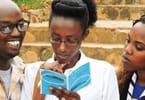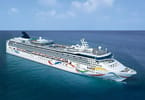Malezijski turizam unovčava svoje "islamsko nasljeđe"
Yusof Sulaiman
KUALA LUMPUR, Malaysia (eTN) – Malaysian tourism is now looking to cash in on its “Islamic brethren” heritage from the Middle East as the industry’s savior.
The country’s tourism industry, still reeling from the government’s announcement of cutbacks on hosting of official functions in hotel premises, is looking forward to the arrival of summer spending by the influx of seasonal tourists from the Gulf region.
Despite enduring an average of seven-hour flights to Malaysia, Tourism Malaysia expects an estimated 400,000 tourists from the Middle East would have been seduced by its commercial pitch on television and promotion in Oman, Kuwait and at the Arabian Travel Market 2008, held in Dubai recently.
For the next few months, visuals of Malaysian life and culture, including other tourism packages it is selling, such as eco-tourism, medical and health tourism, spa, honeymoon and its Malaysia My Second Home, will be used to lure tourists from the Middle East who are looking to escape the scorching summer heat back at home.
“We have received an increasing number of inquiries from the region, ” said Razali Omar, Tourism Malaysia director for the UAE, Gulf and Iran region. “Our television promo, Malaysia Truly Asia, and a laid-back lifestyle are a constant reminder of what they have been missing.”
Among the country’s efforts to encourage tourists from the Middle East to “feel at home” while in the country, Kuala Lumpur city has designated an area called “Ain Arabia” or “Arab Street” in the heart of Kuala Lumpur’s busy shopping area. “The Arabs can come here to dine, shop and meet.”
Usually packed during the summer holiday period of July to September every year, Ain Arabia has become a place frequented by locals and other tourists who want to experience Arabian food and culture in Malaysia.
Malaysia’s population of 26 million is made up of 57 percent Malays, who by definition are practicing Muslims. Chinese and Indians, who are free to follow their own religious practices, make up the rest of the country’s population mix. The country has variously been described as one of the most ethnically and religiously diverse nations in the world today, with all of the world’s major religions represented.
ŠTO ISKLJUČITI IZ OVOG ČLANKA:
- For the next few months, visuals of Malaysian life and culture, including other tourism packages it is selling, such as eco-tourism, medical and health tourism, spa, honeymoon and its Malaysia My Second Home, will be used to lure tourists from the Middle East who are looking to escape the scorching summer heat back at home.
- The country’s tourism industry, still reeling from the government’s announcement of cutbacks on hosting of official functions in hotel premises, is looking forward to the arrival of summer spending by the influx of seasonal tourists from the Gulf region.
- Despite enduring an average of seven-hour flights to Malaysia, Tourism Malaysia expects an estimated 400,000 tourists from the Middle East would have been seduced by its commercial pitch on television and promotion in Oman, Kuwait and at the Arabian Travel Market 2008, held in Dubai recently.






















